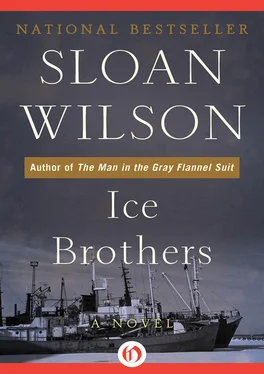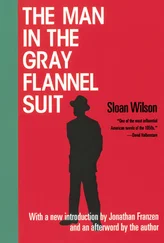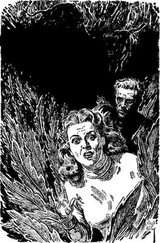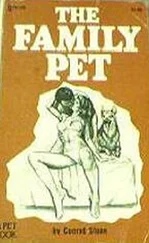“Shit, guys,” Paul said. “This is for the Danes. It’s part of their consignment. They paid for it.”
“Aye, aye, sir,” Boats said. “First time you ever did stevedore work, sir?”
“Look, I’ll try to get the skipper to break out some beer for you guys in the morning. I’d give you this booze if it were mine.”
“Sure you would, sir,” Boats said with a smile. “We know your heart is in the right place, sir.”
Feeling ridiculous, Paul hurried to the Dane’s cottage. He was halfway there before he remembered that he was supposed to bring tea and coffee too, but he doubted whether they would be missed.
In Paul’s absence the party had livened up. The table and chairs had been pushed into a bedroom and people were dancing to a scratchy record of “You Are My Sunshine.” In the center of the room Mowrey had stretched his arms around all of Hilda’s quivering charms. The two of them were enjoying the dance without bothering to move their feet much. “By God, you finally made it!” Mowrey said when Paul carried the case of whiskey into the room. Taking the heavy box off his shoulder, he ripped it open with one swipe of his heavy hand and handed it to Anderson. The Dane’s thin blonde wife appeared almost immediately with a tray full of glasses and a pitcher of water. As the whiskey was being poured, the spring of the victrola began to wind down, drawing the words of “You Are My Sunshine” into a mournful moan. Striding across the room, Mowrey cut it off. “Let’s make our own music,” he said. “How about a song?”
With his arms still around Hilda, Mowrey started with, “Let Me Call You Sweetheart,” the title of which everyone chorused, though no one knew many more of the words. The Danish national anthem came next, followed by “The Star Spangled Banner,” “America,” and “God Bless America.” After a short pause for refilling glasses, Mowrey started on “One-Eyed Riley.” Few people understood the words, which he did not pronounce clearly, but they recognized the fact that the song was bawdy and cheered lustily. The blonde woman passed a platter of codfish strips which had been salted so heavily that they produced a burning thirst. Anderson opened another bottle of whiskey.
Standing at the back of the room, Paul drank his share. It was hard not to contrast this revel with the predicament of the Nanmak , now ringed by enemy radio signals. Suddenly it seemed inevitable that the Arluk would soon be sent to help her. The thought that this might be his last party crossed his mind and seemed more gloomily realistic than melodramatic. Hilda’s breasts jiggled magnificently as she attempted to dance with the captain. Now the victrola was playing Italian opera.
Paul’s legs began to ache and the floor felt strangely comfortable when he sat on it. A thin bald man who explained that he was a doctor joined him. He carried a bottle of whiskey and kept both of their glasses full while in broken English he described the medical problems of the Eskimos. They suffered a great deal from tuberculosis, from venereal diseases, and from what white men call childhood diseases. Most died before they were forty. Eskimos melt like snow once white men arrive in great numbers, the doctor said almost casually. They can’t handle alcohol. Sugar rots their teeth, and they exhaust their game supply soon after getting guns. It takes only a few years for their best hunters to become drunken beggars.
This news deepened the brown of Paul’s mood. The Eskies were dying and probably he himself would not last long. Finishing his drink, he lay down on the wonderfully comfortable floor and napped. When he awoke sun was still streaming through the lace curtains at the windows. His watch told him it was a little after three, and he was suddenly unsure whether that was three in the morning or afternoon. Most of the other people were now sprawled on the floor. Mowrey was sitting with his back against a wall and his arm around Hilda, who was stroking his face. Mowrey did not react. His mouth was slightly open, and when the victrola stopped, Paul heard him snoring lightly. Hilda caught Paul’s eye, and moving surprisingly fast on her hands and knees, crawled over to him. At that time and place her method of locomotion did not seem in the least surprising. Her great bosom swayed attractively in front of her.
“The captain, he no hold liquor good, you say?”
“I say,” Paul replied, and folded her into his arms as she sprawled by his side. The room was so full of tobacco smoke that his eyes stung. Some of the Danes had left and those who remained were asleep, as far as he could make out in the dim light. Hilda kissed him, her lips blubbery and soft, her breath coming hot and hard.
“No men here,” she said. “No men for very long time.”
“It must be tough.”
“You beautiful boy.”
“You’re beautiful too.”
Certainly she seemed that at the time. He buried his face between her breasts.
“You come my place,” she said, stroking his hair.
They had difficulty standing up. It was hard enough for him to get on his feet, but almost impossible for her, and when he tried to pull her up, she won the tug of war and he found himself sprawled on top of her. After kissing some more, they crawled to a window ledge, and using that for support got to their feet with only two heavy falls. Her hand hit a whiskey bottle that had been left on the windowsill and sent it clattering against Mowrey’s feet. Awaking with a grunt, the captain kicked it away. With much laughter and more embraces, Paul and Hilda put on their parkas in the vestibule and staggered out into the eternal sunlight. Holding each other up, they had not walked more than a hundred yards toward the nearest cabin when Mowrey came staggering after them. He had put on his parka but had not buttoned it, and in his hand he carried a bottle of scotch.
“Goddamn it, Yale, where are you going?”
“I’ll see you aboard ship before long.”
“Damn your eyes, come back here! Are you stealing my girl?”
“I’m just helping her home.”
“Christ, she can get home alone. Come here! I want to talk to you.”
Paul hesitated.
“Come here!” Mowrey thundered. “Goddamn it, that’s an order!”
“Better go,” Hilda said. “Maybe tomorrow.” Letting go of Paul, she staggered toward her little house.
Mowrey waited, taking frequent sips from his bottle. He was swaying as though he were standing on the deck of a ship in a gale, and sat down in the frozen mud suddenly as Paul approached.
“Give me a hand, goddamn it,” he said. “Lesson one: don’t take the skipper’s girl. Lesson two: don’t fuck no Danish girls. They make trouble. Stick to the Eskies. There will be plenty of them farther north.”
They staggered toward the ship. Suddenly they were surrounded by sled dogs. Perhaps sensing the weakness of the stumbling men, they pressed close, snapping viciously, and retreated only a few yards when Paul and Mowrey roared at them. Throwing motions and even clumps of frozen mud hurled in their direction did not break up the circle the dogs formed around them. In a rage, Mowrey charged the lead dog, swinging his bottle. Only then did the dogs slink back to the shadows of the warehouse.
“You can’t let them know you’re scared,” Mowrey said. “Christ, let’s take a breather. They’ll let us alone now.”
Clambering to the top of a granite knoll, he sat down and took a sip from his bottle before passing it to Paul. The knoll commanded a view of the wharf, the ship and the harbor beyond, which glowed copper in the sun. A crowd of Eskimos and sailors were milling around on the end of the wharf near the ship. There was a lot of shouting and singing, but at the moment that seemed simply logical to Paul on this night of partying. Mowrey did not seem to notice.
Читать дальше












